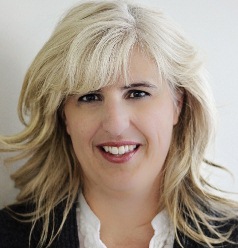Single parent headed households: Perspectives from Big Brothers Big Sisters of Waterloo Region
To take a deeper look at the Single Parent Headed Households indicator in Snapshot in Time: Root Causes of Crime in Waterloo Region, we talked to Julie Philips, Chief Operating Officer for Big Brothers, Big Sisters of Waterloo Region.
1. What is your response to the data presented on this indicator/variable? How does it make you feel when you reflect on this indicator?
People often assume that children raised in a lone-parent family are more likely to live in poverty and are also more likely to commit crime. I would venture to say that children and youth from fragmented households are perhaps just as likely to commit crime as lone-parent offspring. What do I mean by fragmented? A two parent family, where the parents are too busy to invest time in their children. Parents who at the end of the day are too tired, burned out and stressed, leaving little time or energy to actively engage their children. Parents who create an unstable home life thus leaving their children to find their own sense of belonging, their network of support.
2. Who is involved in addressing this issue in your sector? What are you already doing about it?
Many organizations, both formal and informal are working to address this issue. Schools, teachers, faith communities, neighbourhood associations to social service agencies are working individually and as a collective to provide healthy networks of support for children and youth in our region regardless of family structure.
We believe in working with others to promote healthy and safe environments for children. Our programs are not “cookie-cutter or clinical” but are based on the power of friendship – having someone special to spend time with and count on. We have passion for excellence and our programs evolve with the emerging needs of our community through collaborative efforts and leveraging collective resources. Our programs are child-centered and therefore allow each child to be supported in a way that helps them reach their individual goals.
Children in our community based programs are primarily from lone-parent families or extended families.
One-to-One matches children and youth with the support of a caring adult mentor. The goal is that children and youth become empowered to reach their potential as engaged, confident and well-rounded individuals who are able to develop and maintain positive relationships.
Big Bunch provides children and youth with mentoring support through group programming. By participating in recreational opportunities, children and youth develop and maintain positive relationships, and become confident, engaged members of their community.
Children in our school based and summer programs are from a variety of family structures.
In-School Mentoring provides elementary students who could benefit from extra emotional, social or academic support, with a caring adult mentor. The goal is for students to become engaged, connected, contributing, skilled, and confident members of their school and community, empowering them to reach their potential.
Go Girls! Healthy Bodies Healthy Minds is designed for girls aged 12-14 and provides them with information to help make informed choices about healthy, active living and supports them in dealing with the emotional, social and cultural issues they may face. The goal of the program is that participants have a positive body image, high self-esteem, healthy eating habits, be physically active, and able to create and maintain healthy relationships.
Game On! uses a mentor approach to provide boys and young men with information and support to make informed choices about a range of healthy lifestyle practices. Through non-traditional physical activities, complemented with healthy eating support, participants are engaged in life skills, communication, and emotional health discussions designed to engage participants in the pursuit of life-long healthy lifestyles.
Summer Discovery supports children during the summer months. They enjoy all that summer has to offer games, crafts, activities and snacks! This day program is about having fun and building friendships, while learning and participating in physical activity together.
3. What else should be done and/or needs to be done about it?
There also needs to be greater engagement of children and youth in the process. Access to services and supports need to be simplified – it is currently too easy to get frustrated or lost in the system when trying to access support. A greater focus should be given to providing proactive rather than reactive strategies. We need to work towards removing the stigma sometimes felt by parents/families access services. The community as a whole needs to work collaborate to holistically address the needs of children and youth in the Region. This means valuing the working of the services providers and committing to sustainable revenue sources for service providers.
 Author: Julie Phillips, a native of Cambridge, has an interest for world missions as well as local outreach. As the former Executive Director with Big Brothers Big Sisters of Cambridge she played a key role in the successful merger of the Cambridge and Kitchener-Waterloo chapters. With 12 years of experience in the non-profit sector and as Chief Operating Officer of Big Brothers Big Sisters of Waterloo Region she works towards providing youth in her community with the same opportunities she had when she was growing up. Julie is an active volunteer in her community and is passionate about the social issues affecting the well-being of our region’s residents.
Author: Julie Phillips, a native of Cambridge, has an interest for world missions as well as local outreach. As the former Executive Director with Big Brothers Big Sisters of Cambridge she played a key role in the successful merger of the Cambridge and Kitchener-Waterloo chapters. With 12 years of experience in the non-profit sector and as Chief Operating Officer of Big Brothers Big Sisters of Waterloo Region she works towards providing youth in her community with the same opportunities she had when she was growing up. Julie is an active volunteer in her community and is passionate about the social issues affecting the well-being of our region’s residents.